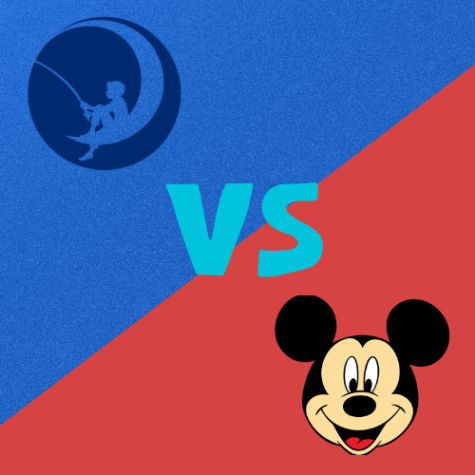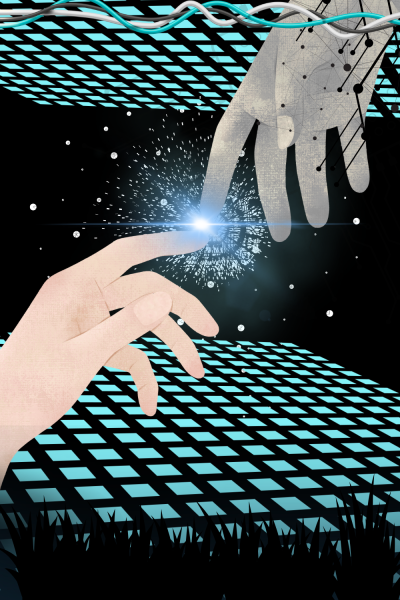NISI AND NATE DEBATE, PART III: ARE NERDS REALLY OUTCASTS?
Nerds by definition are outcasts. Only a nerd would suggest otherwise.
This is perhaps the most controversial subject in our “Nisi and Nate Debate” series; that’s why we saved it for last! At first, my suggestion was that we write an article on whether or not there is an inverted U-curve concerning likeability times intelligence in relation to the number of AP classes taken by students, but for obvious reasons that suggestion was rejected–”modified”–to a debate as to whether nerds are actually treated as popularly depicted, or whether they are really “cool kids” themselves. I chose to argue that nerds are indeed outcasts in real life; Nisi got the more “edgy” position. I will strongly advocate for my case, however; don’t give up hope!
I think a “nerd” can be defined as one who does not adhere to the mainstream activities and preferences. Think of “nerddom” as a kind of counterculture, but one that is not characterized by rebellion but rather by an actuation of personal preferences. Thus, I think a 3rd-grader who sits on a playground table and plays with Pokémon cards while other kids play tag is definitely a nerd. But my definition has a flaw: does that mean if all children are playing cards while two insist on playing tag, the latter are nerds? I do not believe so, because it is obvious that the mainstream cultural trend in the 3rd-grade demographic is the playing of tag. Thus, one can have a specialized “magnet school” in which every kid is a nerd by the fact that, although their individual preferences align, their preferences differ widely from the commonly-accepted mainstream. I will use this definition throughout the article, making no fuss of the semantic differences between “nerd” and “geek,” which I find drab.
Now, we must make rather broad judgments about what activities are “mainstream” and what activities can qualify a kid for nerddom. I think it’s obvious that sports are mainstream; if you aren’t convinced of this by experience or by sitcoms, I’d adjure you to spend some time trying to fit in at a school–especially a small school–without playing a sport. I think the notion that “nerds are cool” is often spoken in relation to a specific type of sitcom character, the guy or girl who is both smart and sports-oriented. This, however, prompts a counterargument: is there a point at which a person participating in sports becomes so unusually academically-oriented that he or she crosses the threshold and officially becomes a “nerd”? I think the answer is yes. But, I don’t think many people get there. Many true nerds who play sports are compelled by outside forces (parents, coaches) and quit as soon as they can. Just because you are smart and sports-oriented doesn’t mean you are both a “nerd” and a “jock”–at least in my definition of the words–because you cannot prefer two mutually incompatible things at once. If you exist at the exact equilibrium between preferring sports (or some other demographically-prevalent activity) and “nerd” (countercultural) activity then I think we should come up with a new word for your type. Again, I don’t think this type of person comes often.
Arguments in which the primary forms of evidence are personal experience and television aren’t usually very stable, and I don’t expect you to agree with me or even with my premises. I would encourage you to come up with your own definition of “nerd,” “jock,” and possibly even other categories (e.g. “geek,” “nerd-jock”). See where you fit in! I believe, unfortunately, that a fundamental modern human tendency is self-deprecation (the “humble brag” is a manifestation of this). The ‘80s jock would’ve proudly said, “I’m a jock,” but the ‘10s jock is inclined to say, “I am a nerd,” and giggle while thinking about our popular notion of how nerds are “cool.” Nerds aren’t “cool,” they’re a category of people defined by a departure from mainstream preferences. That is one of the fundamental definitions of “uncoolness.” Why do you think nerds are picked on? If you lived in 3500 B.C. Jericho and you decided to draw anime on a rock rather than sow seed, I guarantee you that a group of contemporary “jocks” would beat you up on the spot. Human tendencies like this–to include and exclude–exist in society today, even though they may be outdated. It’s the classic nerd statement-of-relief: “One day, I’ll be making more money than all these people.” The nerd is almost always correct–our economy is service and creativity-based. Back in the day, it would have been in your best interest to adhere to the mainstream (unless in your tinkering you invented something amazing, like the wheel); now, countercultural preferences are often a prerequisite for modern jobs.
Experiential evidence may incline you toward my position. I do online school, but until mid-freshman year I was in a small-town school district; this is by far the best environment for observing how nerds are indeed not cool at all. Jocks beat nerds up, physically and mentally. The only nerds I saw fit in were nerds who established dominance in a prevalent accepted activity–almost always sports. Thus, I saw my nerdy friend become a jock by utilizing his natural aptitude for basketball. Was he still a nerd? No; he became a jock. I imagine that a lot of readers come from larger-school backgrounds, in which there may be more of a “padding” for nerds to fit in–and that’s great! But, as I have argued, I still think the pervasive distinction between nerds and jocks applies in many modern situations, school especially. You can be a smart jock; you can be a not-so-smart nerd. It’s a preference-and-methods game, not an intelligence game. But, again, arguments founded solely on individual semantic definitions are prone to be reviled; that’s why people try to avoid broad arguments!
Kudos to the nerds out there; be thankful for the fact that you live in an economy and a country in which individuality is valued! Although school may be hard now, don’t give up hope. As my mom always says: “You know, nerds rule the world.”












